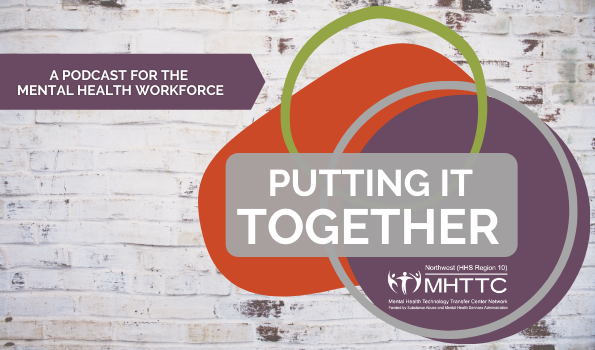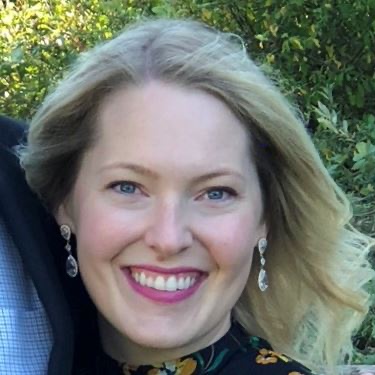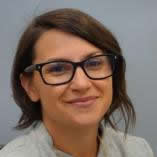
In this extended interview, we talk with Faculty & Trainers at the SPIRIT Lab at the University of Washington. SPIRIT stands for Supporting Psychosis Innovation through Research, Implementation, & Training and our Northwest MHTTC team works closely with SPIRIT Lab Faculty as they are core content experts and leaders in that arena. about key training topics for the workforce who support people living with serious mental health conditions. Hear about a training approach backed by experience and research from a training team committed to helping the workforce feel skilled in serving this population. They have worked in the field and are passionate about training others. You will hear how knowledge, attitude and skills to perform this important work and increase your effectiveness and perspective. Come learn best practice strategies that can be implemented in your work with individuals experiencing SMI to support recovery!
Highlights from the discussion:

Shannon Stewart graduated from Arizona State University with a dual major in Psychology and Communication and completed a Master’s Degree in Community Counseling at Seattle University. Prior to joining the UW SPIRIT Lab, she worked at Harborview Medical Center providing supported employment and Cognitive Behavioral Therapy for psychosis (CBTp) to adults with persistent and medication-resistant psychosis as well as First Episode Psychosis. She also served as the CBTp Agency Lead for Harborview’s Mental Health and Addiction Services. Shannon’s interests involve understanding/addressing how stigma around serious mental illness creates barriers to access, engagement, therapeutic rapport-building, and recovery. Now as a CBTp trainer with the SPIRIT lab, she is committed to using her personal experience learning CBTp as a community mental health clinician to support other professionals in their learning journey.
 Jeffery Roskelley is a licensed independent clinical social worker training and consulting for the SPIRIT (which stands for Supporting Psychosis Innovation through Research, Implementation and Training) Lab at the University of Washington. Jeff graduated from the University of Utah with a Master of Social Work degree in 2008, and has worked in several different settings including hospice, as a co-occurring assessment specialist at the University of Utah and as a co-occurring specialist for the Lake Whatcom PACT team in Bellingham WA, where he currently resides. Jeff’s area of specialty is in Cognitive Behavioral Therapy for Psychosis and for Substance Use Disorder. Since 2013 he has been training Assertive Community Treatment Teams in WA state in co-occurring disorders treatment and cognitive behavioral techniques for severe mental illness. Jeff was trained and received consultation in CBTp with the original Washington state cohort in 2015, trained by Jennifer Gottlieb, PhD, from the Harvard Medical School and provided direct clinical CBTp counseling to clients at Sunrise Mental Health from 2015 to 2018, receiving supervision from Sarah Kopelovich, PhD, from the University of Washington. Currently, Jeff provides individual private counseling in Acceptance and Commitment Therapy, addressing a wide range of clinical issues, ranging from anxiety and depression to obsessive compulsive disorder and psychosis. In addition, Jeff is a clinical supervisor for social workers. Finally, last but not least, Jeff is an ardent dog lover and a dabbler in chi gong.
Jeffery Roskelley is a licensed independent clinical social worker training and consulting for the SPIRIT (which stands for Supporting Psychosis Innovation through Research, Implementation and Training) Lab at the University of Washington. Jeff graduated from the University of Utah with a Master of Social Work degree in 2008, and has worked in several different settings including hospice, as a co-occurring assessment specialist at the University of Utah and as a co-occurring specialist for the Lake Whatcom PACT team in Bellingham WA, where he currently resides. Jeff’s area of specialty is in Cognitive Behavioral Therapy for Psychosis and for Substance Use Disorder. Since 2013 he has been training Assertive Community Treatment Teams in WA state in co-occurring disorders treatment and cognitive behavioral techniques for severe mental illness. Jeff was trained and received consultation in CBTp with the original Washington state cohort in 2015, trained by Jennifer Gottlieb, PhD, from the Harvard Medical School and provided direct clinical CBTp counseling to clients at Sunrise Mental Health from 2015 to 2018, receiving supervision from Sarah Kopelovich, PhD, from the University of Washington. Currently, Jeff provides individual private counseling in Acceptance and Commitment Therapy, addressing a wide range of clinical issues, ranging from anxiety and depression to obsessive compulsive disorder and psychosis. In addition, Jeff is a clinical supervisor for social workers. Finally, last but not least, Jeff is an ardent dog lover and a dabbler in chi gong.

Mel LaBelle is currently providing training and consultation for the Cognitive Behavioral Therapy for psychosis (CBTp) project with a focus on CBTp groups. He graduated from Argosy University, Seattle with a Bachelor of Arts in Psychology, and a Master of Arts in Counseling Psychology. Prior to joining the UW Psychiatry Department, he has spent the past 10+ years working in non-profit public health and mental health agencies in the Greater Seattle Area. As a licensed mental health counselor Mel has provided CBTp and other evidence-based therapies to individual clients and groups with a focus on LGBTQIA+ and BIPOC. He has also trained and worked as a mHealth Support Specialist for the University of Washington FOCUS study. Mel’s interests involve using the gestalt of a person’s culture, biosocial history, social support system, and belief structure within group therapy to assist the individual, and other group members, in increased awareness, understanding, and personal efficacy.

Sarah Kopelovich, PhD is a forensically-trained licensed clinical psychologist in the Department of Psychiatry and Behavioral Sciences at the University of Washington School of Medicine. Dr. Kopelovich is an Associate Professor in the department and holds the Professorship in Cognitive Behavioral Therapy for psychosis. Her current research is specifically oriented toward implementation and dissemination strategies for psychotherapeutic and psychosocial interventions for Schizophrenia Spectrum Disorders. She regularly conducts workshops, seminars, and professional consultation across the country for an array of mental health professionals and trainees in CBT for psychosis; Recovery-Oriented Cognitive Therapy; Individual Resiliency Training for First Episode Psychosis; Assertive Community Treatment; and diagnostic, suicide, and violence risk assessment. Dr. Kopelovich completed a postdoctoral fellowship in Serious Mental Illness at Emory University School of Medicine in 2015. She received her doctorate in Clinical Psychology from City University of New York and a terminal Master’s in Forensic Psychology from John Jay College of Criminal Justice of the City University of New York.
The SPIRIT Lab has been providing workforce development to practitioners serving individuals with Serious Mental Illness for more than a decade. Driven by a dedication to advancing recovery for individuals and families affected by psychosis, SPIRIT lab faculty and staff provide training and consultation to an array of behavioral health and allied providers in research-based and culturally informed interventions.

Christina Clayton has been working in the behavioral health field since 1993 working with people and programs addressing severe mental health issues, substance use, co-occurring issues, chronic homelessness, integrated care, outreach, physical health, trauma and diversity/equity/inclusion topics. Christina has education and licenses/credentials in clinical social work, mental health and substance use. She is also a Clinical Assistant Professor and Field Instructor for the University of Washington School of Social Work (MSW ’97). Learn more about MHTTC Staff & Faculty